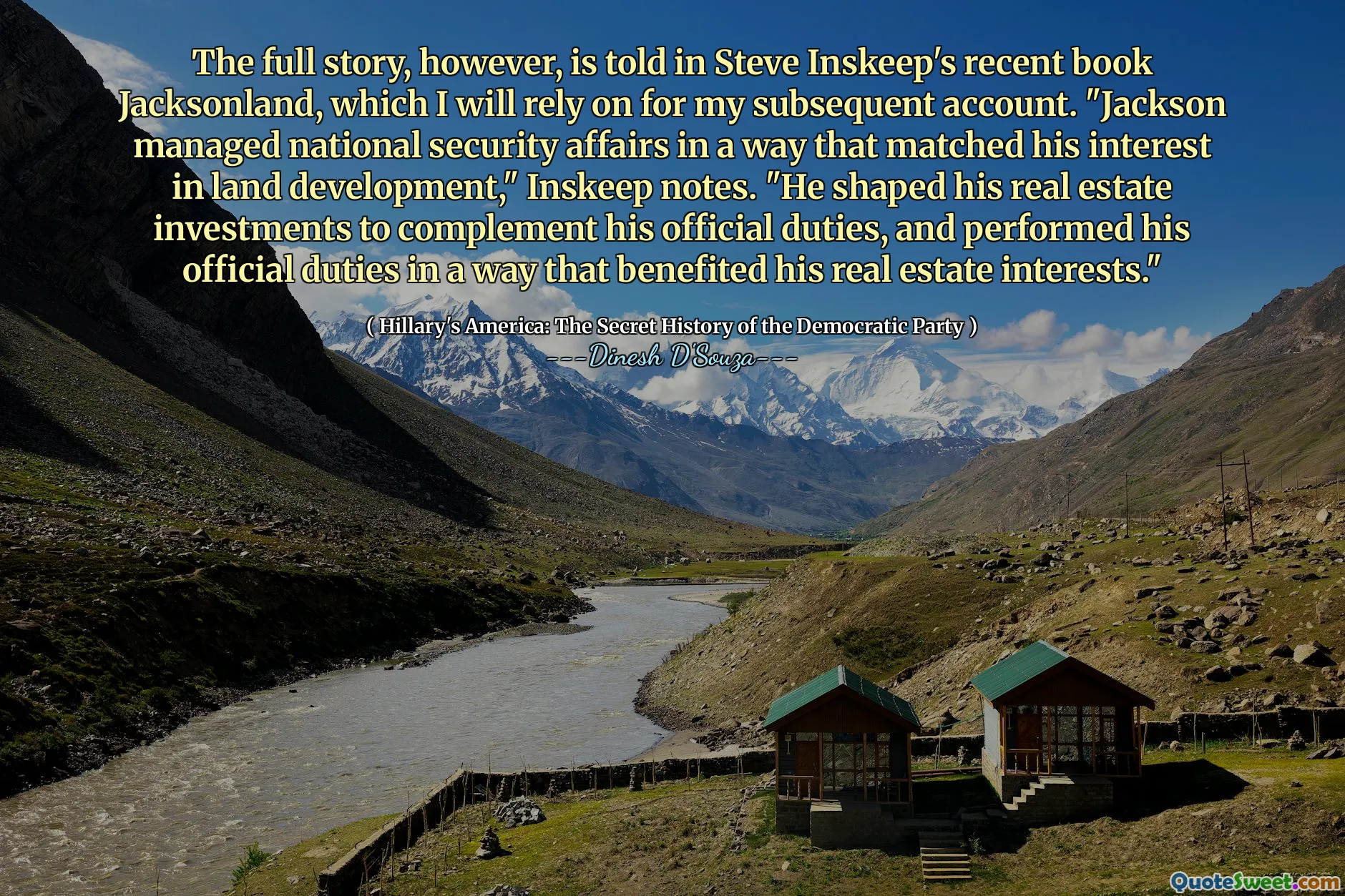
The full story, however, is told in Steve Inskeep's recent book Jacksonland, which I will rely on for my subsequent account. "Jackson managed national security affairs in a way that matched his interest in land development," Inskeep notes. "He shaped his real estate investments to complement his official duties, and performed his official duties in a way that benefited his real estate interests."
This quote sheds light on the often overlooked intersection between political leadership and personal financial interests in American history. President Andrew Jackson, a towering figure known for his influence on national policies and expansionism, is presented here not merely as a statesman but as a shrewd operator who intertwined his official duties with his investments. Such mutual reinforcement raises critical questions about ethical boundaries in governance and the potential for conflicts of interest when public officials leverage their positions for private gain. It invites us to reflect on the ways in which political actions can be driven by personal gain, intentionally or unintentionally, and how these motives may shape policies that affect millions. Recognizing these connections deepens our understanding of historical figures beyond their public personas, revealing complexities that may influence the course of history. It also prompts modern discussions about transparency, accountability, and the importance of preventing corruption. The example of Jackson, as described in Inskeep's account, demonstrates that issues of corruption are not new but have been woven into the fabric of American politics since its earliest days. Ultimately, this perspective encourages us to critically evaluate power and interests in leadership—recognizing that history is often a nuanced interplay of morality, ambition, and reputation—and to remain vigilant about the integrity of those who hold public trust.








